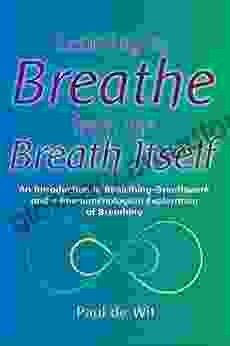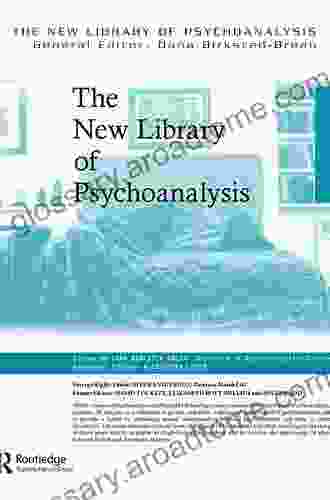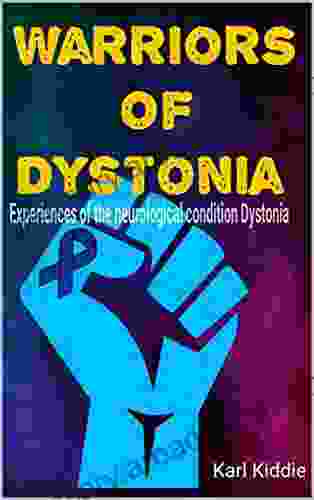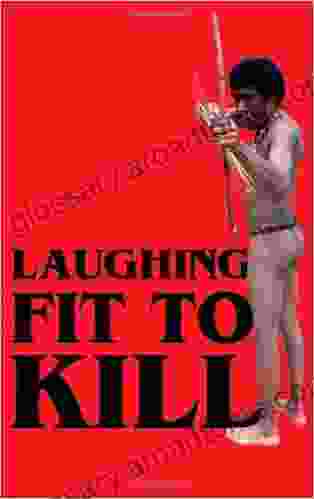Unlocking the Secrets of Urbanization: A Journey Through Franz Metcalf's General Theory of Urbanization (1867)

5 out of 5
| Language | : | English |
| File size | : | 193067 KB |
| Screen Reader | : | Supported |
| Print length | : | 736 pages |
In the annals of urban studies, Franz Metcalf occupies a prominent position as a visionary thinker whose pioneering work laid the groundwork for our understanding of urbanization. His magnum opus, the General Theory of Urbanization, published in 1867, has served as a cornerstone of urban planning, urban sociology, and urban geography for over a century.
The Birth of an Urban Theory
Franz Metcalf was born in 1827 in a rapidly industrializing England. The profound social and economic transformations he witnessed firsthand ignited a deep interest in the forces shaping urban growth and development.
Drawing inspiration from the advancements in natural sciences, Metcalf sought to develop a systematic and empirically grounded theory of urbanization. His General Theory of Urbanization aimed to provide a comprehensive framework for understanding the complex dynamics of urban life.
Key Concepts of Metcalf's Theory
Metcalf's General Theory of Urbanization is built upon several key concepts that continue to resonate in contemporary urban studies:
- Urbanization as a Natural Process: Metcalf argued that urbanization is not an arbitrary or haphazard phenomenon, but rather a natural outcome of societal evolution. He saw urban growth as a function of technological advancements, economic development, and the increasing complexity of social organization.
- The Concentration of Population: Metcalf emphasized the role of population concentration as a defining characteristic of urbanization. He observed that urban areas exhibit a high density of population compared to rural areas, leading to unique social and economic dynamics.
- Urban Differentiation: Metcalf recognized that urbanization involves a process of differentiation within the urban fabric. He described how cities develop specialized zones and districts, such as industrial areas, residential neighborhoods, and commercial centers.
- The Central Business District: Metcalf identified the central business district (CBD) as the core of urban life. He argued that the CBD serves as a focal point for economic activity, transportation, and social interaction.
- Urban Growth Patterns: Metcalf proposed that urban growth follows predictable patterns. He suggested that cities tend to expand in a concentric pattern, with the CBD forming the core and new suburbs developing on the periphery.
Historical Context and Influence
Metcalf's General Theory of Urbanization was published at a pivotal moment in urban history. The Industrial Revolution was transforming societies across Europe and North America, leading to rapid population growth and the emergence of large-scale urban centers.
Metcalf's theory provided a much-needed framework for understanding the profound changes taking place in urban environments. His ideas influenced urban planners, architects, and social reformers who sought to address the challenges and opportunities presented by urbanization.
Lasting Impact on Urban Studies
Over the past century and a half, Franz Metcalf's General Theory of Urbanization has had a profound impact on urban studies:
- Foundation of Urban Planning: Metcalf's theory provided a scientific basis for urban planning and development. Planners have used his insights to guide decisions about urban zoning, infrastructure, and public services.
- Urban Sociology: Metcalf's emphasis on population concentration and urban differentiation has influenced the development of urban sociology. Sociologists have explored the social and cultural implications of urban life, building upon Metcalf's foundational concepts.
- Urban Geography: Metcalf's theory has been instrumental in shaping urban geography, a field that examines the spatial distribution of urban phenomena. Geographers have used Metcalf's ideas to understand urban patterns, inequality, and the relationship between cities and their regions.
- Contemporary Urban Research: Metcalf's theory remains relevant in contemporary urban research. Scholars continue to draw upon his insights to explore issues such as urban sustainability, gentrification, and the role of technology in urban development.
Franz Metcalf's General Theory of Urbanization (1867) stands as a testament to the enduring power of scientific inquiry. His pioneering work provided a comprehensive understanding of urbanization, shaping the discipline of urban studies and influencing generations of scholars and practitioners.
As cities continue to evolve and face new challenges, Metcalf's theory remains an invaluable resource for understanding the complexities of urban life. By delving into its pages, we gain a deeper appreciation for the profound forces that have shaped our urban environments and the opportunities and challenges that lie ahead.
If you are interested in exploring the General Theory of Urbanization in greater depth, I highly recommend reading Metcalf's original work or consulting contemporary scholarship that builds upon his foundational ideas.
Join us in celebrating the legacy of Franz Metcalf and his enduring contribution to our understanding of urbanization.
Further Reading:
- The General Theory of Urbanization (1867) by Franz Metcalf
- Urbanization as a Theory of Social Change
- The Role of Urbanization in Economic Development
5 out of 5
| Language | : | English |
| File size | : | 193067 KB |
| Screen Reader | : | Supported |
| Print length | : | 736 pages |
Do you want to contribute by writing guest posts on this blog?
Please contact us and send us a resume of previous articles that you have written.
 Book
Book Novel
Novel Page
Page Chapter
Chapter Text
Text Story
Story Genre
Genre Reader
Reader Library
Library Paperback
Paperback E-book
E-book Magazine
Magazine Newspaper
Newspaper Paragraph
Paragraph Sentence
Sentence Bookmark
Bookmark Shelf
Shelf Glossary
Glossary Bibliography
Bibliography Foreword
Foreword Preface
Preface Synopsis
Synopsis Annotation
Annotation Footnote
Footnote Manuscript
Manuscript Scroll
Scroll Codex
Codex Tome
Tome Bestseller
Bestseller Classics
Classics Library card
Library card Narrative
Narrative Biography
Biography Autobiography
Autobiography Memoir
Memoir Reference
Reference Encyclopedia
Encyclopedia Sheikh Mohammad Ali
Sheikh Mohammad Ali Gail Gauvreau
Gail Gauvreau Joe Exotic
Joe Exotic Serene Mclaren
Serene Mclaren Mike Miley
Mike Miley Pinchas Winston
Pinchas Winston Natalie Pompilio
Natalie Pompilio Gilbert Baker
Gilbert Baker G Michael Vasey
G Michael Vasey George Howard
George Howard Rick Carter Jr
Rick Carter Jr Paulette Bourgeois
Paulette Bourgeois L J Trafford
L J Trafford Gautam Kumar Das
Gautam Kumar Das Jennifer Clapp
Jennifer Clapp Tom Kwanya
Tom Kwanya Gina Campbell
Gina Campbell Frank Joseph
Frank Joseph Gisele Da Silva Dalben
Gisele Da Silva Dalben George Moir
George Moir
Light bulbAdvertise smarter! Our strategic ad space ensures maximum exposure. Reserve your spot today!

 Lawrence BellLearning To Pray With History's Best Teachers: A Spiritual Odyssey Through...
Lawrence BellLearning To Pray With History's Best Teachers: A Spiritual Odyssey Through...
 Elias MitchellUnleash the Power of Your Home: Spells, Rituals, and Magick for a Sacred...
Elias MitchellUnleash the Power of Your Home: Spells, Rituals, and Magick for a Sacred...
 Marvin HayesUnlock Your Inner Potential: The Ultimate Guide to Awaken the Power Within,...
Marvin HayesUnlock Your Inner Potential: The Ultimate Guide to Awaken the Power Within,... Foster HayesFollow ·17.6k
Foster HayesFollow ·17.6k Robert ReedFollow ·19.8k
Robert ReedFollow ·19.8k Truman CapoteFollow ·12.5k
Truman CapoteFollow ·12.5k Chinua AchebeFollow ·12.5k
Chinua AchebeFollow ·12.5k Dawson ReedFollow ·9k
Dawson ReedFollow ·9k Jackson BlairFollow ·13.6k
Jackson BlairFollow ·13.6k Craig CarterFollow ·17.9k
Craig CarterFollow ·17.9k Eric NelsonFollow ·8.6k
Eric NelsonFollow ·8.6k

 Chinua Achebe
Chinua AchebeLetters to My Bipolar Self: A Journey of Hope, Healing,...
Bipolar disFree...

 John Parker
John ParkerLearning to Breathe from the Breath Itself: A...
In the whirlwind of modern life, finding...

 Beau Carter
Beau CarterExperiences In Psychoanalysis: A Journey into the...
Are you fascinated by the...

 George Hayes
George HayesExperiences Of The Neurological Condition Dystonia
Navigating the Labyrinth of a Complex...

 Jerome Powell
Jerome PowellOver 50 Keto Meal Prep Recipes: Your Essential Guide to...
Welcome to the world...
5 out of 5
| Language | : | English |
| File size | : | 193067 KB |
| Screen Reader | : | Supported |
| Print length | : | 736 pages |








